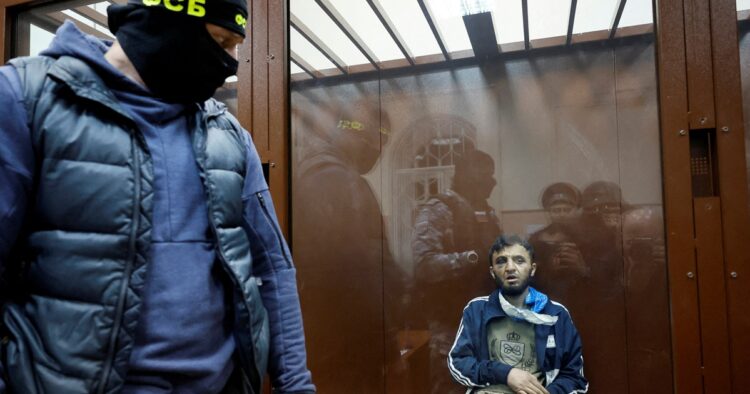Four men suspected of carrying out a brutal attack on a concert hall near Moscow have been charged with committing a terrorist act. The attack, which resulted in the deaths of at least 137 people, took place during a rock concert, where gunmen opened fire and set off explosive devices.
The suspects, all migrant laborers from Tajikistan working in Russia, appeared in court and were remanded in custody until May 22. They face a maximum sentence of life in prison. Two of the defendants pleaded guilty, while the plea of the other two remains unspecified.
During the court proceedings, it was evident that the suspects had been severely beaten and injured. Videos of them being interrogated circulated on social media, sparking outrage.
One of the defendants, Muhammadsobir Fayzov, the youngest at 19 years old, appeared in court spoke quietly through a translator, recounting his biography.
Another suspect, Saidakrami Rachalbalizoda, 30, bore visible injuries, including a large bandage where interrogators had sliced off a part of his ear and forced it into his mouth.
The court limited media access to the hearings, citing concerns about revealing sensitive details of the investigation. This is a common practice in Russia.
The suspects were apprehended after authorities intercepted the car they were fleeing in, located 230 miles southwest of Moscow. President Vladimir Putin suggested a possible link between the attack and Ukraine’s war effort, but the United States attributed it to the extremist jihadi organization, the Islamic State group, which claimed responsibility.
Among the charged men, Dalerjon Mirzoyev, 32, who had visible injuries, leaned on the glass wall of the court cage for support. Mirzoyev, a father of four, had an expired temporary residence permit in Russia.
Another defendant, Shamsidin Fariduni, 25, married with an 8-month-old baby, worked in a factory producing parquet in Podolsk, just southwest of Moscow. The Islamic State group has been known to recruit among migrant laborers from Central Asia in Russia, who often face discrimination.

















Comments